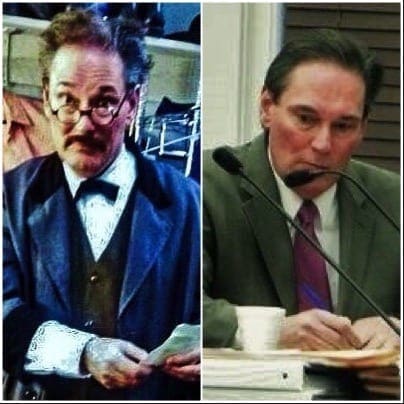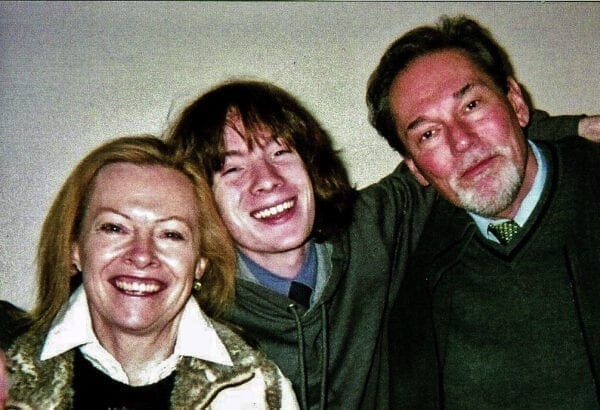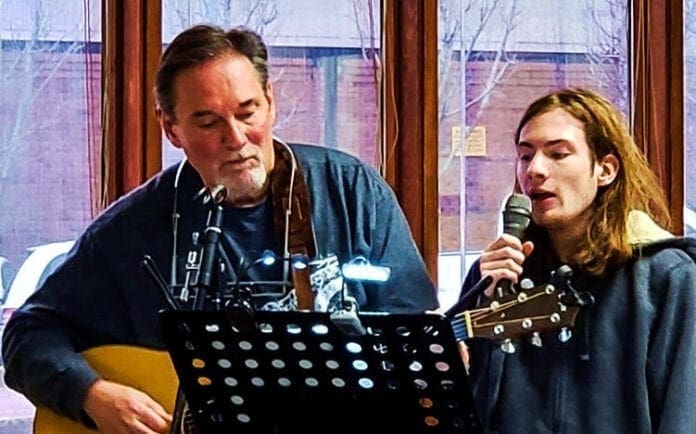OK, so take this the right way. Bob Gaudio is not normal.
Now, that means “normal” compared to most, of course, and with that in mind, please allow for an upgrade; he’s really not normal.
Really. Not. Normal.
- A divorce guided him away from culinary arts and to a career as an attorney because no one could defend him more efficiently.
- He has said, “No,” to the rich and famous.
- He relishes his chances to perform significant and small roles on the stage at Oglebay Institute’s Towngate Theatre.
- He has performed his music on Facebook Live on many Sunday evenings during this pandemic and has donated all funds raised to local non-profits.
- And Bob Gaudio loves most of the people he knows and cares about those he’s never met.
None of that is normal, but these things and many more make the Brooke County native the gentleman that he is. Gaudio was the chair of the board for the Upper Ohio Valley Italian Festival for more than five years, he is very active with Legal Aid of West Virginia, and he’s been a long-term board member for Youth Services System.
The point is this: Bob Gaudio, a most intelligent man on a plethora of levels, offers himself and his many talents for free to many more than his immediate and extended family, and in this era of political division, that’s really not normal.

You can be very political on social media, but then you implement “quit times” during which you refuse to discuss politics. Please explain what those breaks accomplish for you.
I grew up in an uber-political, union household, and most meals contained political conversation. Facebook is a hybrid form of word communication. Words over a computer network — immediate, faceless, voiceless.
At times powerful, angry, loving, provocative, caring, bullying, helpful, condescending — profound words. Heat rises quickly, and the lack of time and physical presence cause highly charged political exchanges. I avoid those, trying to carry on political discourse with facts and an open mind. Sometimes that requires me to call a time-out. Although I have learned to control my temper in my 67 years, I know when to back off. And a break never hurt anyone.
As a public defender, what are the best parts and the worst parts of your job?
Best part? Going to work as a dedicated cog in the wheel of the criminal-justice system. Criminal law is interesting, edgy, ever-changing and, at times, exciting. Worst? Protecting clients from wrongly-collected evidence. Worst because it requires putting officers under oath and poking holes in their evidence using my client’s 4th Amendment rights. Those police are citizens who work hard every day to protect and serve us. Making good arrests through constitutional searches and seizures are a major part of their duty.
It is not easy. A crime scene can cause cops to miss steps because they are human. I try to remind them by challenging their specific process that sloth, emotions, and fatigue can and will scuttle an effective crime investigation.
After many years in the culinary arts industry, you decided to go to law school and become a lawyer. Why?
A lengthy, contentious divorce. Post-divorce wranglings in Allegheny County courts. Too many hearings. Fired three lawyers and decided to represent myself. Went to Pitt Law Library and asked for help. The law librarians were invaluable. My first legal brief on my old Underwood typewriter. Judge dismissed the petition. A final hearing before Judge R. Stanton Wettick, Jr. He ruled in my favor and ended everything, bless him. Judge asked me back to chambers and urged me to be a litigator. “Son, you just kicked the legal ass of one of the finest family lawyers in Pennsylvania. You NEED to be one of us!” LSAT, four years of nights at Duquesne Law, bar exam and a call from Bob Pettini, Wheeling’s chief public defender. In a courtroom on my first day as an attorney and have never regretted one moment.

In your position, you are exposed to many of the social issues facing the elected officials and residents of the Upper Ohio Valley. How frustrating is it for you that most people in the area choose to ignore those issues until something directly impacts their own lives?
The phenomenon you describe is not uncommon among humans. Human carers and givers are the rare exceptions. If the issue impacts us directly, we whine or we act. Indirectly, we whine, mostly. Not at all, cable television or the internet.
Our Upper Ohio Valley has issues, certainly. COVID-19 comes to mind, of course. If government doesn’t respond, we suffer needlessly. If donors and volunteers don’t respond, the needy suffer more. When government and citizens work together on a problem, it is usually solved. Rogue efforts can frustrate and fail. A fair, healthy, just, caring community is difficult for humans. Doing nothing to achieve it, however, guarantees failure.
Music has always been a huge part of your life, but in the last five years you have been playing gigs at local venues. What reaction do you hope to provoke from the audience, and how do you adapt when not receiving it? Please explain.
Music is magic in sound. For example, the Christmas hymn “Silent Night” entrances and most often moves an audience emotionally, Christians or not. I try to make my audiences forget problems for a few moments with my sound, hoping the magic gives them some happiness. Artists cannot be concerned with how an audience reacts. I bring songs I can stand to hear myself play! I try a little of each genre to soothe them. They usually like SOMETHING!


